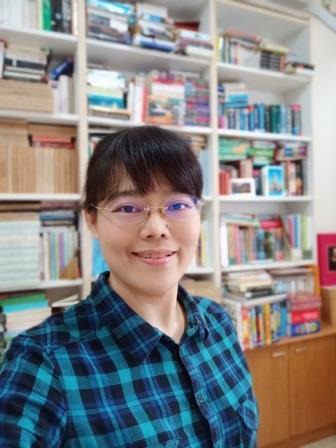Associate Professor Chi-Fang Sophia Li published groundbreaking Shakespearean research in world-leading journal, Shakespeare Survey

(Provided by College of Liberal Arts) If every scientist wants to shine in Nature, every Shakespearean scholar will aim to make a significant contribution to Shakespeare Survey (Cambridge UP, AHCI). Having won a prestigious Junior Investigators’ Award from Academia Sinica in 2016, Dr. Chi-Fang Sophia Li once again made a seminal breakthrough in Shakespearean research. Her 10,000-word article entitled “In Conversation with Shakespeare in Jacobean London: Social Insanity and Its Taming Schools in 1&2 Honest Whore” was published in Shakespeare Survey 73. Dr Li is the second scholar from Taiwan who has successfully attempted the submission to this world-leading annual journal founded in 1948.
Dr Li’s article surveys Shakespeare’s Italian comedies and tragedies, from which she traces the writer’s Italophile attitude alongside the impact of the plague made on London during 1604. Also considering the works of Shakespeare’s peers such as Thomas Dekker and Thomas Middleton, she discovered significant dialogue among the playwrights. Such dialogue (staged at the crossroads of literary, biographical, and historical studies and theatrical imaginings), she argues, constitutes an important cultural critique on Shakespeare’s indifference about the collective social anxiety in plague-stricken London. In addition to satirizing Shakespeare’s silence about the social angst caused by the infectious diseases, Dekker and Middleton also stage social insanity in their plays of social realism to criticize Shakespearean romanticism.
Dr Li explained the difficulties of publishing a paper in Shakespeare Survey. First, as the mission statement of the journal has it, “Since 1948 Survey has published the best international scholarship in English and many of its essays have become classics of Shakespeare criticism”. To satisfy the stated criteria is a daunting challenge. Second, each year this annual journal only accepts fewer than ten research articles related to the theme of the year. Even though the Call for Papers is announced every year, accepted articles will not normally be published in two years’ time. Third, Shakespeare being a literary giant, who eclipses his peers, it is nearly impossible to flip the cultural ideology about Shakespearean romanticism. Fourth, even though Dr Li’s submission – her first attempt – was unconditionally accepted, she had to wait for three years to see it in print.
“Ars longa, vita brevis*. How many times can one try to compete, wait, and get published in Shakespeare Survey?” Dr Li humbly said, “I am not the only humanist working diligently and silently in my study. There are many predecessors in the fields of literature, history and philosophy who are more patient and resilient than me! They are even more productive than me. Isn’t it true that the time statement of humanism is to find our relative position in our cultural space wherein we can vigorously create eternity for our cultural lives? Three years seems long for the contributor, but in the long process of human civilization, it is just a fleeting moment.”
*Art is long, life is short
(Edited by Public Affairs Division)
